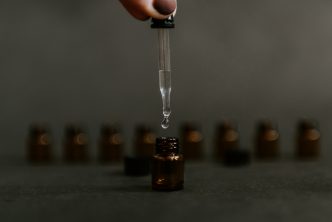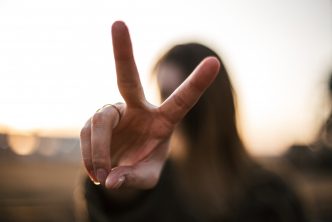When patients come to me with insomnia, my first line of attack is to look for something they’re taking or eating, such as a unidentified food allergies or hypersensitivities. There’s often about a six-hour delay between consumption of the offending
Although it is well known that caffeine, in the form of tea, coffee, chocolate or cocoa causes insomnia (Clin Pharmacol Therap, 1976; 20: 682-89), less is known about alcohol. Inspite of a sedative effect at first, drinking alcohol can significantly interfere with the quality of sleep (Electroencephalogram Clin Neurophysiol, 1980; 48: 6: 706-9).
Certain herbal tonics contain botanical stimulants, and numerous over-the-counters and prescription medicines contain caffeine.
When the cause isn’t food or drink, insomnia is often linked to depression. It’s also caused by tension, pain, emotional arousal, discomfort, disruption of one’s surroundings or an change in environment, or even a fear of sleeping.
A very effective over-the-counter remedy is Passiflora Lehning Drops, which contain Avena sativa, Passiflora, Belladonna, Secale and Valerian all in low homeopathic potencies. The usual dosage is 20 drops taken in some water and away from meals, four times a day. This safe, non-addictive combination was recently the subject of a study of 320 women suffering from insomnia linked to depression and related anxiety, who’d been on antidepressants and sleeping pills. The study, which compared the effectiveness of the homeopathic remedy against the orthodox drugs taken, found that the average increase in duration of sleep was “highly significant” (Editions Lehning, 1992, Passiflora: 1-16).
Nicotinamide, a form of vitamin B3, also known as niacinamide, appears to have hypnotic effects comparable to those of the benzodiazepine drugs, at least according to animal studies (Nature, 1979; 278: 563-5). This has something to do with synthesis of the neurohormone serotonin, which plays an important role in the regulation of sleep. It’s wise to have a blood test of your vitamin B3 status, so that if you are low in it, you can take the appropriate dosage of a B3 supplement before bedtime. Magnesium and yeast-free vitamin B6, which are co-factors, should be administered at the same time.
Regular exercise that is, elevating your heartbeat by 50 per cent for at least 20 minutes during the day and not before retiring should also improve sleep quality.
In herbal medicine, although valerian root is known to combat insomnia (RF Weiss, Herbal Medicine, Gothenberg: A B Arcanum, 1988). controversy has centred on its potential dangers. Valerian contains valepotriates and sesquiterpenes, both of which have sedative effects, although valpotriates are known to be toxic to cells and sesquiterpenes to be safe. In a double-blind trial on a preparation mainly containing sesquiterpenes, manufactured by American company Thorne Research, 44 per cent of the people taking the herb reported perfect sleep and 89 per cent, improved sleep. No adverse effects were observed (Pharmacol Biochem Behav, 1989, 32; 1065-6).
In another study, examining depth of sleeping and brain waves, those patients receiving valerian showed an increase in deep sleep over those given a placebo (Pharmacopsychiatry, 1994; 27: 47-51).
Once your normal sleeping pattern has been re-established, you can slowly decrease the dosage.
Harald Gaier
Harald Gaier is a registered naturopath, homeopath and osteopath.





